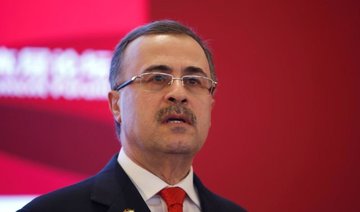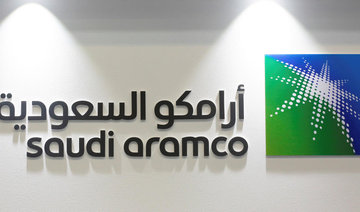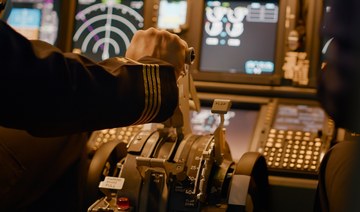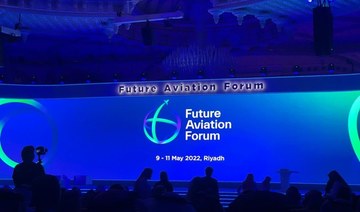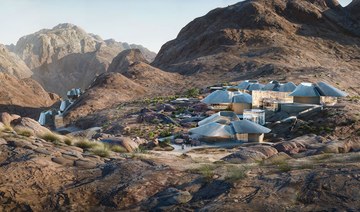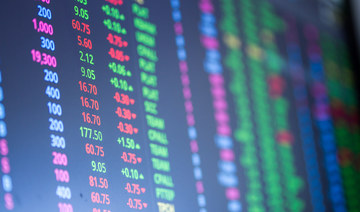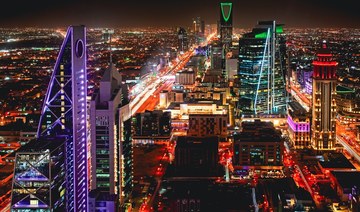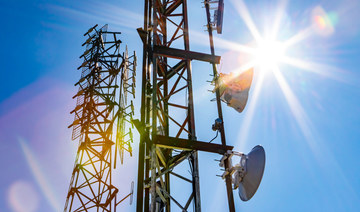DUBAI: London has some very definite advantages in the contest to stage any global element of the forthcoming initial public offering of Saudi Aramco, but whether Saudi Arabian policymakers will be convinced that the UK capital is the place for the flagship share sale — potentially the biggest IPO in history — remains to be seen.
So strong is the claim of the London Stock Exchange (LSE) that for a while it looked like a straight two-horse race between it and the much bigger New York Stock Exchange for the prestigious and money-spinning offering.
That has been complicated over the past few months by the fact that other alternatives have emerged to a big global IPO: An “exclusive” offering on the Tadawul in Riyadh; the emergence of rival venues like Hong Kong and the other New York exchange Nasdaq; and the possibility of a private sale of shares to Chinese or Russian investors; or several combinations of these options.
But London is still in the race, and the official visit by Saudi policymakers this week could be a final opportunity to “kick the tires” of the LSE as a suitable venue for arguably the most important single transaction in the Kingdom’s history. LSE officials can advance several plausible arguments why it should stage the Aramco IPO.
David Hodson, veteran oil executive and financier and managing director of Dubai-based Blue Pearl Management, said: “The big thing London has going for it is that it is not New York. It is a less aggressive investment venue in all respects.”
This was echoed by a senior American investment banker, speaking on condition of anonymity, who said: “New York presents a range of problems, with Sarbanes-Oxley (US investor protection laws), as well as JASTA (anti-terrorism financing legislation) and the whole system of class actions.”
It has become almost accepted wisdom that Aramco would find itself enmired in litigation if it were to list on Wall Street. Although there are some who do not think this is necessarily the case — pointing to the hundreds of billions of dollars of Saudi assets in the US so far left untouched by the hungry lawyers of Manhattan — there is a general feeling, shared by some of Aramco’s advisory team, that listing there would just be asking for trouble.
“The London legal system is different in many respects,” said the banker. There is no British equivalent of the JASTA laws, disclosure and regulatory requirements are looser (especially for oil companies) and, while there is a system of ‘no win, no fee’ litigation, it is not as well-organized or aggressive as in the US, with its armies of class action lawyers.
The gentler legal and regulatory rules in the UK reinforce another advantage London has: It badly wants, even needs, to stage the IPO. Certainly, listing Aramco would talk to the post-Brexit narrative, which sees the world outside the EU as a gigantic opportunity for Britain.
Anti-Brexit campaigners would maintain that this is delusional, but if LSE won Aramco it would certainly allow the British government to claim that there is indeed life after the EU, and advance its cause to continue to be regarded as the capital of the European financial scene.
City veteran Martin Gilbert, co-chief executive of Standard Life Aberdeen, said: “It would obviously be a big and welcome coup if the UK was successful given the competition.”
London has other attractions too. It is not as big as New York — the two exchanges there has a combined market capitalization more than six times that of LSE — but it has a reputation as a truly global exchange, especially reflecting the commodity and energy sector. For example, two of the big members of Aramco’s peer group — BP and Shell — are listed on LSE.
David Ramm, the corporate partner at the London office of global law firm Morgan Lewis, believes London has an advantage in its international appeal. “The LSE reaches a broader and more diverse global network of potential investors than any other exchange, including New York,” he said.
“I suspect that there may also be a view at Aramco that the LSE and its investors may currently be more receptive to foreign listings, especially from the Middle East, than more domestically or the US focused exchanges,” Ramm added.
The London market authorities have gone out of their way to make the LSE more receptive. Last year the regulators proposed to introduce a new category of listing on the market, dubbed the “sovereign IPO,” as a way of allowing governments and other state-linked investors to issue and trade shares on international exchanges without adhering to stricter IPO rules on related party transactions and governance.
While these proposals met with some criticism from a portion of the London investment community and politicians — on the grounds that London was lowering its governance standards to accommodate the Saudis — the British government, the regulators and most financial professionals would welcome the changes if they were to attract the biggest IPO in history.
The changes required for the “sovereign IPO” regime have not yet been finally agreed, but any hint that Aramco was seriously leaning toward London would likely hurry them through without too much delay.
Ellen Wald, Middle East expert and author of upcoming book “Saudi Inc”, said: “The flexibility the LSE has shown will likely appeal to Aramco. The LSE would make sense as one of the exchanges for an Aramco listing because it is a big, stable and prestigious exchange with access to a large number of global investors and capital.
London has presented a persuasive investment case for why Aramco should chose it rather than any other global venue. But in the end, other factors — like geopolitical and foreign policy considerations, as well as personal relations between top policymakers — are just as like to decide the venue for the Aramco.
Hodson summed it up: “The final decision on where to list will be as much a political and strategic call as a financial one.”
London’s best argument for staging Aramco IPO: It is not New York
London’s best argument for staging Aramco IPO: It is not New York
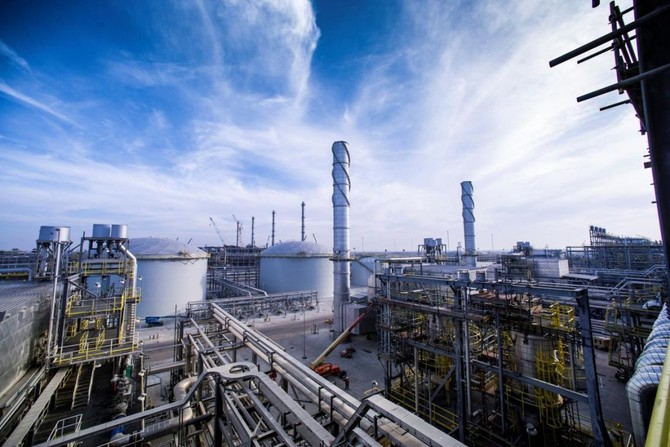
Saudi Arabia to reveal $100bn in investment opportunities at aviation forum

- Minister for Transport and Logistics Services Saleh-Al-Jasser: Saudi Arabia is presenting aviation investment opportunities that are unmatched globally
- Minister for Investment Khalid Al-Falih: Aviation is a key investment sector and enabler of the Kingdom’s broader economic transformation
RIYADH: The world’s largest aviation investors will descend on Riyadh later this month for the Future Aviation Forum, where Saudi Arabia will unveil more than $100 billion in investment opportunities to enable its ambitious Saudi Aviation Strategy.
The forum’s investment showcase will highlight projects and incentives to attract investment into the Kingdom’s booming aviation sector, including airports, airlines, ground services, cargo and logistics.
In the $100 billion in investment opportunities, airports account for more than $50 billion, new aircraft orders about $40 billion, while the remaining $10 billion is earmarked for other projects, including $5 billion in special logistics areas around the main airports in Riyadh, Jeddah, and Dammam.
Minister for Transport and Logistics Services Saleh-Al-Jasser, who will open FAF24, said: “Saudi Arabia is presenting aviation investment opportunities that are unmatched globally, as the Saudi Aviation Strategy triples passenger numbers, connects to more than 250 destinations and handles 330 million passengers and 4.5 million tonnes of cargo by 2030.”
Minister for Investment Khalid Al-Falih, who will open the investment showcase, added: “Saudi Arabia is the world’s new investment hub, targeting $3.3 trillion in investment by 2030. Aviation is a key investment sector and enabler of the Kingdom’s broader economic transformation. The aviation investment showcase will provide investors with unparalleled access to participate in the Kingdom’s transformation.”
The showcase will include investor briefings, meetings and panels on major projects including the six-runway King Salman International Airport in Riyadh and public private partnerships for Abha, Taif, Hail and Qassim international airports. The showcase will also feature opportunities in cargo and logistics, advanced air mobility and business aviation. Aviation suppliers will be briefed on expansion plans for new airline Riyadh Air, as well as leading regional airlines including Saudia, Flynas and Flyadeal.
Global executives from Boeing, Airbus, Commercial Aircraft Corporation of China, and Embraer will attend the event, alongside investors and representatives from airlines, airports, cargo, logistics and aviation services companies. Speakers include Saudi ministers as well as Saudi and global aviation and investment CEOs.
The Future Aviation Forum runs from May 20-22 in Riyadh. For more information, visit www.futureaviationforum.com
NEOM to build Jaumur marina on the Gulf of Aqaba
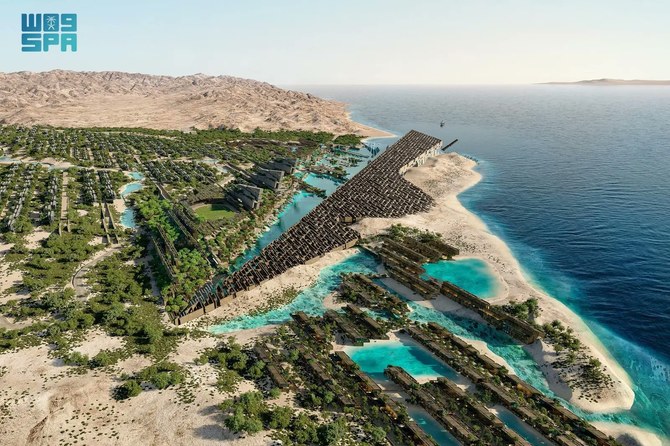
- Jaumur will be an exclusive residential community planned around an inspiring marina for more than 6,000 residents
- The marina promenade will be a place alive with entertainment, leisure and cultural experiences, hosting year-round arts events and performance programs
RIYADH: NEOM has announced that it will build a new marina and community on the Gulf of Aqaba called Jaumur.
The board of directors of NEOM said that Jaumur will be designed to serve the highest standards of future livability and active lifestyle. The new addition promises a unique blend of experiences on land and sea, complementing NEOM’s evolving regional development in northwest Saudi Arabia.
Jaumur will be an exclusive residential community planned around an inspiring marina for more than 6,000 residents. Embedded into the varied topography of the Gulf of Aqaba coast, it will feature 500 marina apartments and nearly 700 luxury villas, offering waterfront access and private mooring. Two distinctive destination hotels in Jaumur will offer 350 luxurious rooms and suites, inviting guests to enjoy the breathtaking views and embrace all aspects of modern coastal hospitality and sporting activities.
The marina will be the focal point of the development, the beating heart around which the community of Jaumur will thrive. A 1.5 km aerofoil rises above the largest of the yacht berths, providing year-round protection for yacht owners and a haven for the marina’s residents and guests. The aerofoil incorporates a gravity-defying cantilever to form a stunning entrance to the marina, welcoming the world’s largest superyachts.
The marina promenade will be a place alive with entertainment, leisure and cultural experiences, hosting year-round arts events and performance programs, complemented by signature retail outlets and world-class dining options.
Jaumur’s commitment to innovation and learning is embodied in the development’s state-of-the-art deep-sea research center and top-tier international boarding school. The research institute is dedicated to deep-sea exploration, welcoming established experts and ambitious pioneers to champion marine discovery, knowledge and conservation and establish NEOM as a world-leading center for oceanographic research.
The international boarding school will prepare students for global achievement through an exclusive and progressive education delivered by a diverse international faculty of experts and innovators.
Jaumur’s unique architectural design integrates water where golden sands meet the deep blue of the Gulf of Aqaba. It is a luxury destination to visit, explore, live and prosper: an opportunity to become part of a dynamic community.
Jaumur follows the recent announcements of Leyja, Epicon, Siranna, Utamo, Norlana, Aquellum, Zardun, Xaynor, Elanan, Gidori and Treyam as sustainable tourism destinations on the Gulf of Aqaba, all woven together by NEOM’s commitment to sustainable progress.
Closing Bell: TASI edges up to close at 12,460 points

RIYADH: Saudi Arabia’s Tadawul All Share Index climbed on Wednesday, gaining 102.12 points, or 0.83 percent, to close at 12,460.11.
The total trading turnover of the benchmark index was SR8.189 billion ($2.18 billion), as 138 of the listed stocks advanced while 81 retreated.
Similarly, the MSCI Tadawul Index increased by 9.75 points, or 0.63 percent, to close at 1,557.46.
The Kingdom’s parallel market Nomu also climbed by 144.95 points, or 0.54 percent, to close at 26,886.59. This comes as 32 of the listed stocks advanced while as many as 35 retreated.
The best-performing stock of the day was Acwa Power Co., whose share price surged by 9.7 percent to SR438.80.
Other top performers include Alkhaleej Training and Education Co. and the Mediterranean and Gulf Insurance and Reinsurance Co., whose share prices soared 8.92 percent and 8.09 percent to SR37.25 and SR34.75, respectively.
Additional top performers include Al-Baha Investment and Development Co. and Malath Cooperative Insurance Co.
The worst performer was Nahdi Medical Co., whose share price dropped by 2.48 percent to SR133.60.
Other poor performers were the Co. for Cooperative Insurance as well as Jabal Omar Development Co., whose share prices dropped by 2.42 percent and 2.32 percent to stand at SR161 and SR27.40, respectively.
Additional poor performers include United Cooperative Assurance Co. and AlSaif Stores for Development and Investment Co.
On the announcements front, Al Rajhi Bank announced its intention to issue US-denominated additional tier-1 capital sukuk under its international additional tier-1 capital sukuk program established on April 18 following the board of directors’ decision on March 25.
The bank informed Tadawul that the value and terms of the sukuk offering would be decided based on current market conditions.
The sukuk will be issued through a special-purpose vehicle and will be accessible to qualified investors, both domestically and internationally.
The bank appointed Al Rajhi Capital, Citigroup Global Markets Ltd, Dubai Islamic Bank, and Emirates NBD, as well as Goldman Sachs International, HSBC, and Standard Chartered Bank, as joint lead managers and bookrunners for the potential offering.
Nahdi Medical Co. announced its results for interim financial results for the period ending on March 31, with revenues surging by 7.24 percent to reach SR2.257 billion, compared to SR2.105 billion in 2023.
The increase was primarily driven by a strong performance in the core pharma segment and a solid recovery in front shop segment led by the beauty categories.
However, the company’s net profits decreased in the first quarter of this year to SR232.9 million, marking a 4.67 percent decline compared to the same quarter in 2023.
Saudi Telecom Co. also announced its financial results for the same period with earnings increasing 5.07 percent compared to the same quarter last year, reaching SR19.1 billion.
Saudi Real Estate Co. also announced its financial results for the same period, with revenues surging by 8.8 percent to reach SR427.6 million, compared to SR393 million in 2023.
The revenue growth was mainly attributed to the increase in stc Saudi Arabia earnings by 1.2 percent, driven by the rise in commercial unit revenues by 6.7 percent and carriers and wholesale unit incomes by 5.7 percent, which offset the decline in business unit revenues.
Furthermore, stc’s subsidiaries’ gains also increased by 13 percent.
Halwani Bros. Co.’s earnings increased by 5.93 percent to SR270.36 billion compared to SR255.22 billion in its interim financial results, which ended March 31.
The reason for the increase in sales during the current quarter compared to the same period of the previous year is due to a rise in the company’s transactions in the Kingdom and its subsidiary in Egypt.
Saudi Arabia achieves highest evaluation level in UN’s Competition Law Systems Report

RIYADH: Saudi Arabia has received global recognition from a UN commission for its robust legal framework and “very strong” competition law.
The Kingdom attained the highest evaluation level in the Competition Law Systems Report for 2023, issued by the UN Economic and Social Commission for Western Asia, surpassing the “developed” level achieved in 2020, according to the Saudi Press Agency.
The Competition Law Index measures the strictness of regulations and is categorized according to the maturity of eight key criteria.
The Kingdom achieved a perfect score of seven in the index concerning regulatory frameworks for economic concentration operations.
Saad Al-Masoud, the spokesperson for the General Authority for Competition, affirmed that this advancement reflects the support GAC receives from the wise leadership to achieve the goals of Vision 2030 programs.
He added that these objectives aim to improve a sustainable business atmosphere, foster economic growth, and advance consumer welfare.
Al-Masoud further noted that this achievement is the result of significant developments in several areas, including laws combating monopolistic practices and anti-competitive agreements, as well as his authority’s efforts to review economic concentrations.
He also said that several additional factors have contributed to upholding the competitive landscape of the business sector, ensuring fairness, transparency, and adherence to reasonable competition regulations.
An initial competition system was established in Saudi Arabia in 2004, and in October 2017 the Kingdom’s Council of Ministers endorsed the change of the name to the GAC and a new organizational structure.
The authority was also made a financially and administratively independent entity, and in March 2019, another royal decree was issued approving the updated competition system.
Since its inception 20 years ago, GAC has imposed fines totaling nearly SR1 billion ($270 million) on around 252 companies found to be violating its regulations, according to a recent interview Al-Masoud conducted with Arab News.
As a prominent regulatory body, it aims to safeguard the integrity of market mechanisms while fostering innovation and diversity in products and services.
stc Bank set to launch later this year, says group CEO
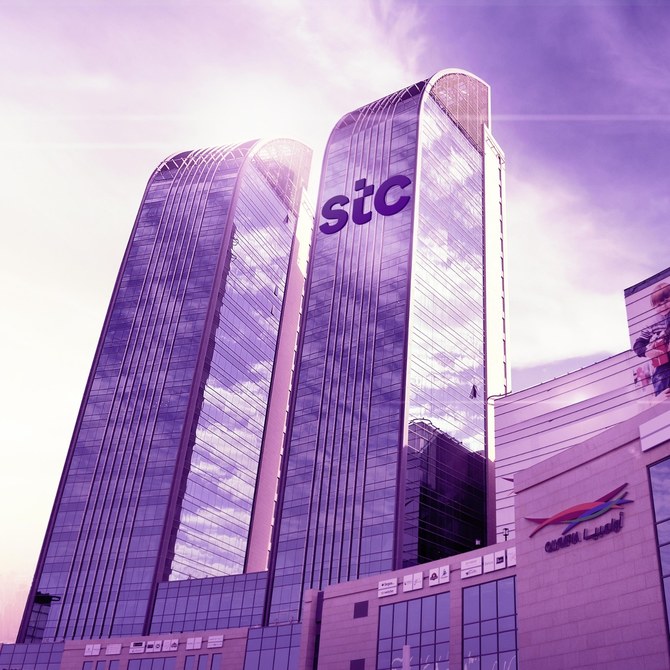
RIYADH: Saudi telecom giant stc Group has obtained official approval for the soft launch of its new banking sector subsidiary, aiming to provide Shariah-compliant fintech solutions.
The Saudi Central Bank has given the green light for the beta launch of stc Bank, with a full rollout to all customers anticipated later this year, revealed the company's CEO, Olayan Al-Wetaid, while announcing the financial results of the first quarter.
The new entity will offer banking services and financial solutions compliant with Islamic Shariah, prioritizing high security and customer protection through advanced fintech. This aligns with the ambitious goals of the Kingdom’s Vision 2030 for a prosperous diversified economy.
In its financial results announcement for the period ending March 31, the CEO explained that stc Group has strengthened its position in the telecommunications sector through a strategic partnership with the Public Investment Fund.
Earlier in April, the two entities finalized agreements for PIF to acquire a 51 percent stake in the Telecommunications Towers Co., also known as Tawal, valuing the company at SR21.94 billion ($5.8 billion).
This transaction is part of a broader merger with Golden Lattice Investment Co. to form a new entity that aims to lead the national telecommunications infrastructure, with stc Group retaining a 43.06 percent stake.
These developments are part of stc’s DARE 2.0 strategy, which focuses on unconventional growth paths and leading digital transformation in the region, Al-Wetaid stated.
The strategy has already yielded significant results, with stc’s network experiencing its highest volume of voice calls during the recent Ramadan, a 35 percent increase compared to the previous year, supported by modern digital voice technologies.
Further embodying its growth strategy, stc Group has engaged in numerous strategic partnerships and agreements, notably at the LEAP 2024 conference with global tech giants such as Huawei, Ericsson, and Samsung.
These collaborations are designed to enhance innovation and speed up digital transformation across the region.
Additionally, the group’s subsidiary, Solutions, signed a memorandum of understanding with the French Devoteam Group in February to explore IT investment opportunities globally, following Solutions’ acquisition of a 40 percent stake in Devoteam Middle East.
In its financial report, stc Group highlighted a notable growth in revenues for the first quarter of 2024, which increased by 7.76 percent compared to the previous quarter and by 5.07 percent compared to the same quarter last year, totaling SR19.1 billion.
This revenue growth was primarily driven by a 1.2 percent increase in stc Saudi Arabia’s revenues, supported by a 6.7 percent rise in commercial unit revenues and a 5.7 percent increase in carriers and wholesale unit revenues, despite a decline in business unit revenues.
Additionally, revenues from stc’s subsidiaries saw a significant rise of 13 percent.
The company also reported growth in gross profit, which rose by 5.13 percent compared to the previous quarter and by 1.65 percent compared to the same quarter last year, reaching SR9.3 billion.
Earnings before interest, taxes, zakat, depreciation, and amortization similarly showed a robust increase, rising by 16.3 percent compared to the previous quarter and by 2.07 percent compared to the same period last year, reaching SR6.4 billion.
Notably, net profit for the quarter surged by 44.50 percent compared to the previous quarter and increased by 5.69 percent compared to the same quarter last year, totaling SR3.2 billion.



